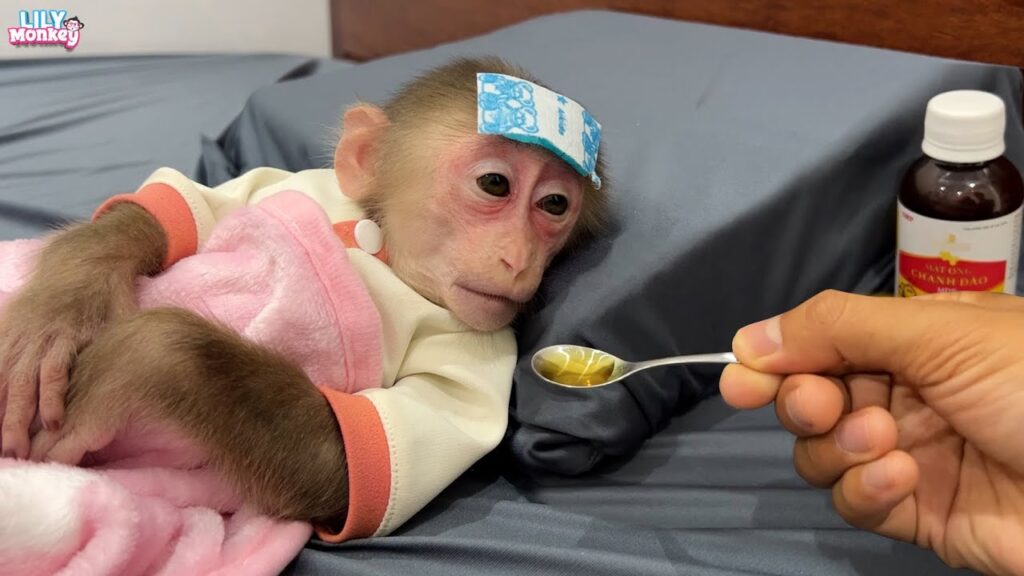
When your beloved monkey, like Lily, suddenly comes down with a high fever, it can be an alarming and stressful experience. Just like human children, monkeys rely on their caregivers for help, comfort, and quick decision-making when they’re unwell. If Lily has a fever, here’s what you can do to support her—and when to seek professional help.
First, it’s important to know the signs of a fever in a monkey. You may notice that Lily is more sluggish than usual, has lost her appetite, or is shivering. Her skin or underarms may feel unusually warm to the touch. In some cases, she might breathe faster, cling more than usual, or show signs of irritability or discomfort.
If you suspect she has a fever, use a digital thermometer designed for pets or babies (rectal thermometers are the most accurate for monkeys). The normal body temperature for most monkeys ranges from 99°F to 103°F (37.2°C to 39.4°C). Anything higher may indicate a fever and should not be ignored.
If Lily’s temperature is elevated but not dangerously high, here are a few steps you can take at home while you arrange for veterinary care:
- Hydration is Key – Fever can quickly lead to dehydration. Offer Lily plenty of clean water or an electrolyte solution formulated for pets. If she refuses to drink, try using a dropper or syringe gently.
- Cool Her Down Safely – You can help reduce her body temperature by placing a cool (not cold) damp cloth on her body, especially her underarms, belly, and feet. Never use ice or very cold water, as it can shock her system.
- Keep Her Comfortable – Make sure her environment is quiet, dim, and calm. Remove any unnecessary heat sources and ensure she’s in a well-ventilated area. Monitor her closely for any changes in behavior.
A high fever in monkeys is always a reason for concern. It could be caused by a viral or bacterial infection, a reaction to stress, injury, or another underlying medical condition. While supportive care is important, only a veterinarian with experience in primates can diagnose and treat the root cause.
Let the vet know about any symptoms you’ve observed, how long the fever has lasted, and if Lily has been exposed to anything unusual (new foods, contact with other animals, etc.). Be prepared to transport her safely to the clinic, keeping her warm but not overheated.


